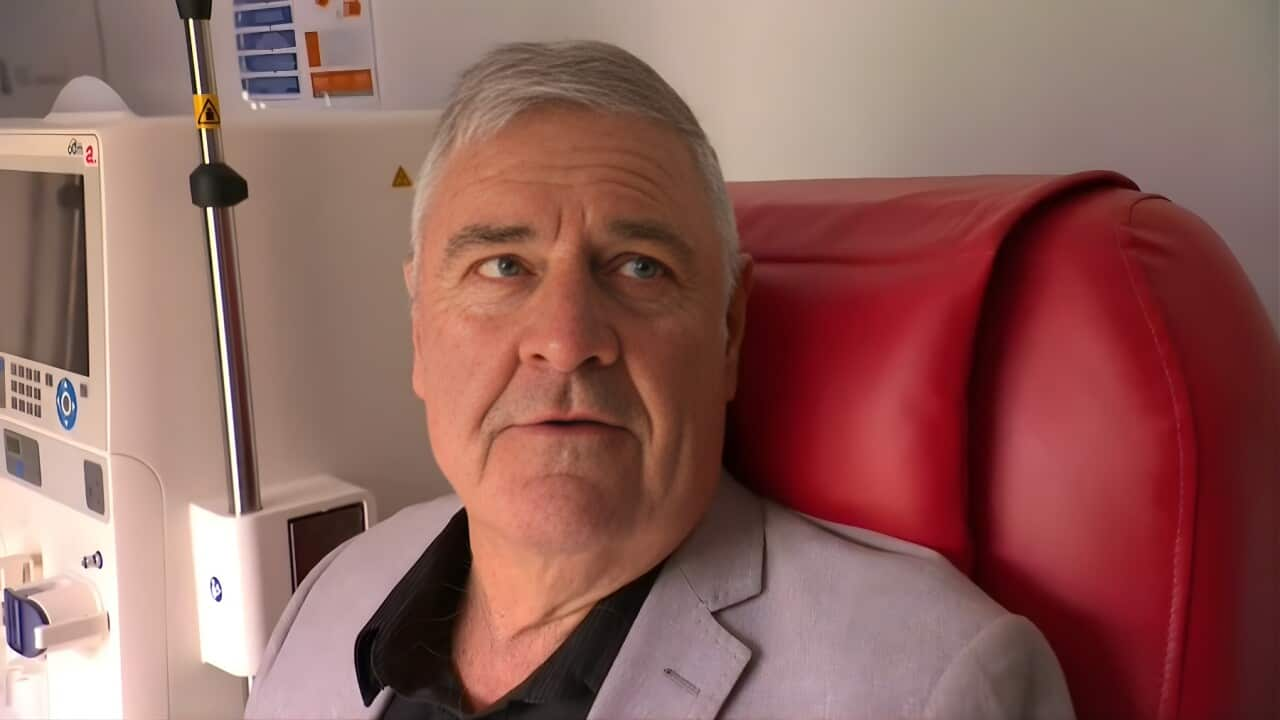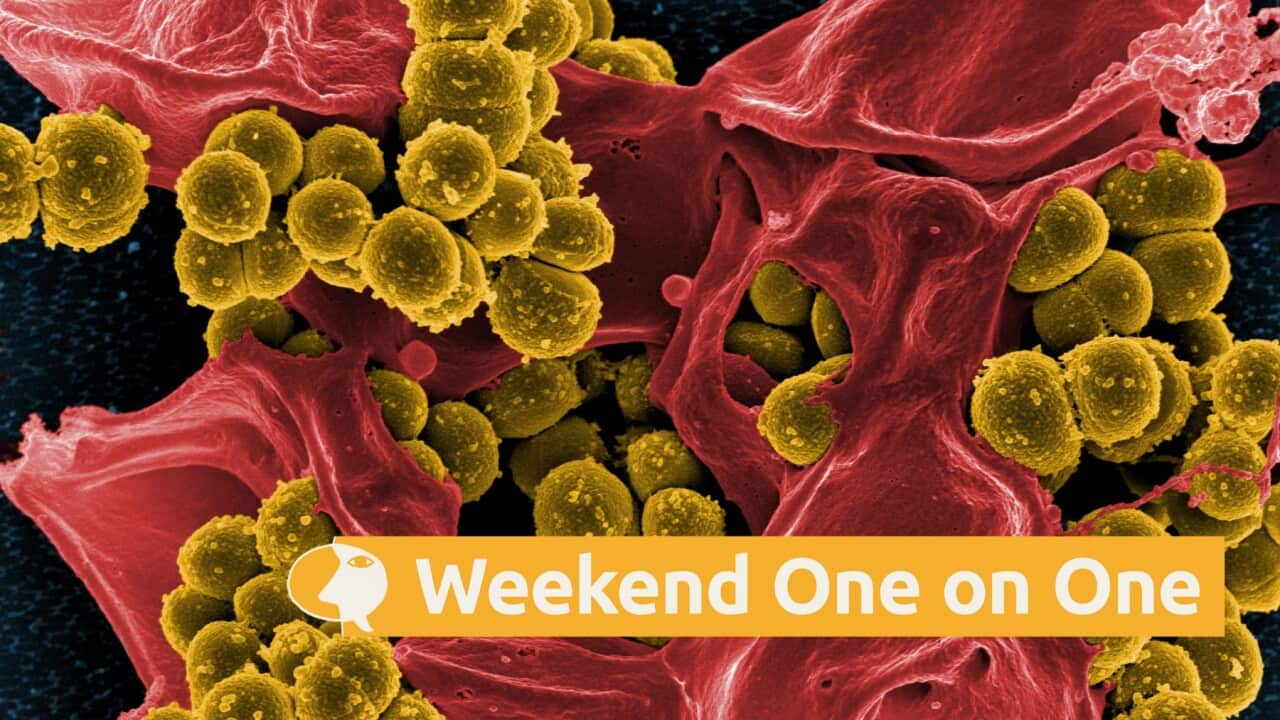Listen to Australian and world news, and follow trending topics with SBS News Podcasts.
TRANSCRIPT
Peter Brown was diagnosed with kidney disease two years ago. For him, the treatment process has been overwhelming.
"A very debilitating, a very overwhelming feeling of being sick and not being able to do anything. The doctors told me I'd maybe end up being on dialysis, which is a sort of scary proposition."
Since then, Mr Brown has been relying on medication to improve his condition.
He's pleased to learn his upcoming medication bill can be cheaper, as the federal government announces that it will include a drug for kidney disease into the Pharmaceutical Benefits Scheme.
Jardiance is a medication that can slow kidney damage over time and help preserve kidney function for longer.
As a concession card holder, it means Mr Brown will only need to pay $7.70 per script to access Jardiance from now on.
"It's gonna make a big difference, and the fact that $7.70 is a big difference when you work it out over 12 months."
For eligible patients without a concession card, the script will only cost $31.60.
And from January 1 next year, the price will be further lowered to $25.
Federal Health Minister Mark Butler says Jardiance is a life-changing drug for many Australians.
"Last year, we listed Jardiance for a limited group of Australians with a particular type of kidney disease. But from Saturday, we think another 70,000 Australians with kidney disease will become eligible for this life-changing drug."]]
According to 2021 census, around 1 per cent of Australian population are living with kidney disease, with one in twenty Australians aged 75 and above being diagnosed with the disease.
Mr Butler describes kidney disease as a silent epidemic in Australia.
"We think more than two and a half million Australians have kidney disease, but less than 10 per cent of them know about it, because the sign and symptoms of kidney disease usually only become apparent when it's as much as 90 per cent of loss of kidney function has already taken place."
Professor Carol Pollock, who is the chair of Kidney Health Australia, also stresses the importance of conducting health checks to detect the asymptomatic disease.
"To pick up kidney disease, what we really need is a blood test, a blood pressure check and a urine test. And some people will have some of these tests done, but not always together, and we really need the three of them to be done. And what we would like to see is a kidney health check that meant that people would have those things done and then have an understanding of what the risk the kidney disease could be and allow it to be appropriately treated."













